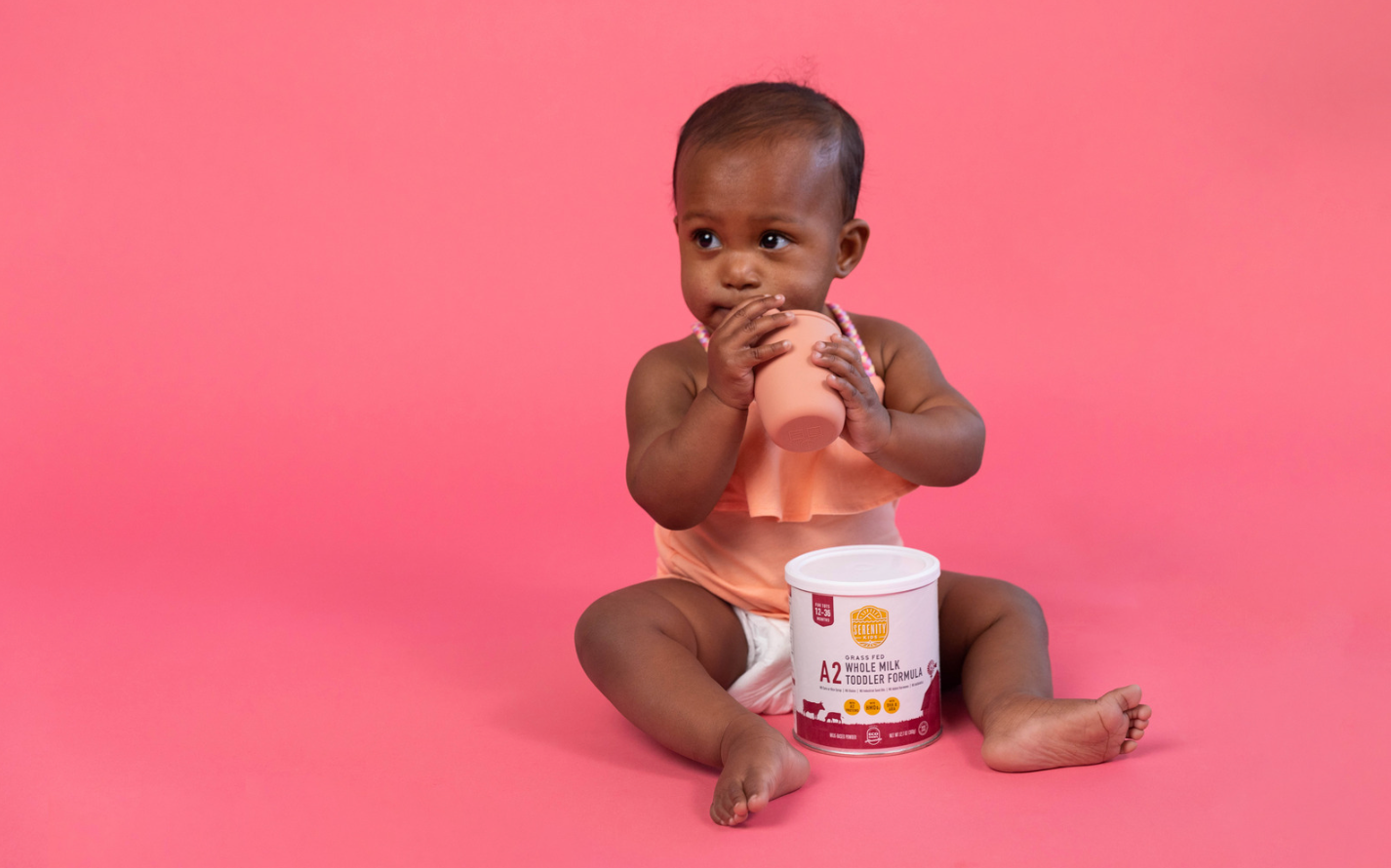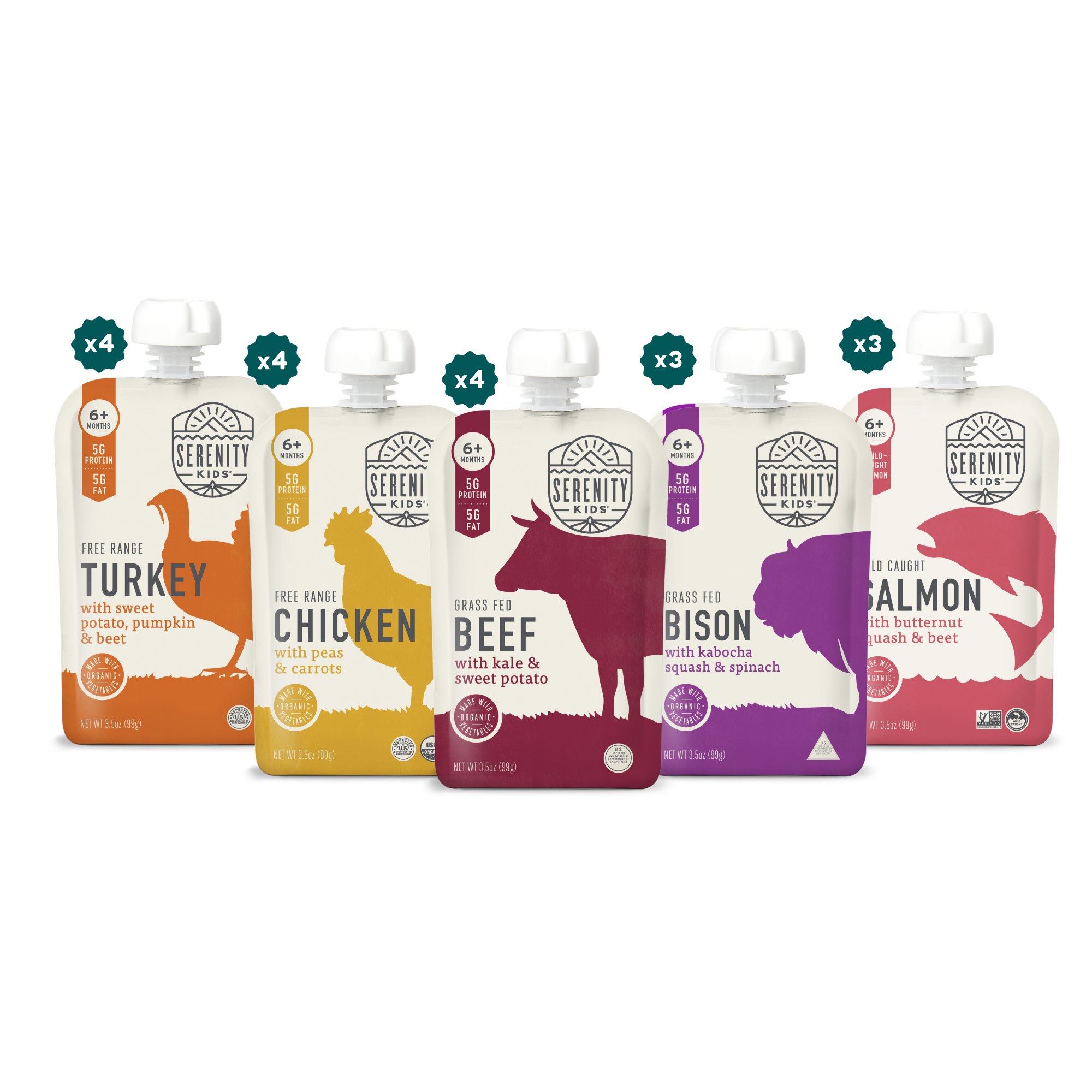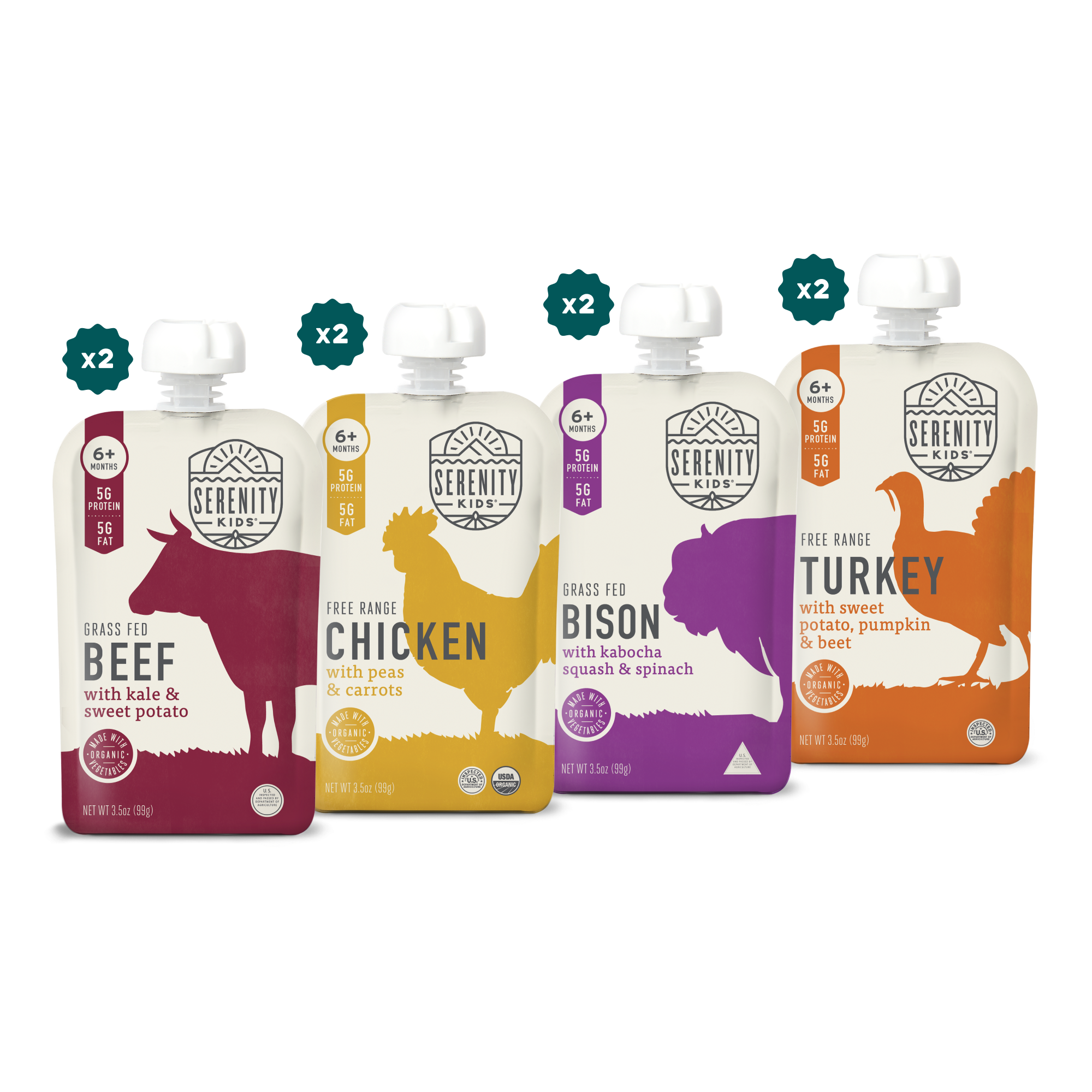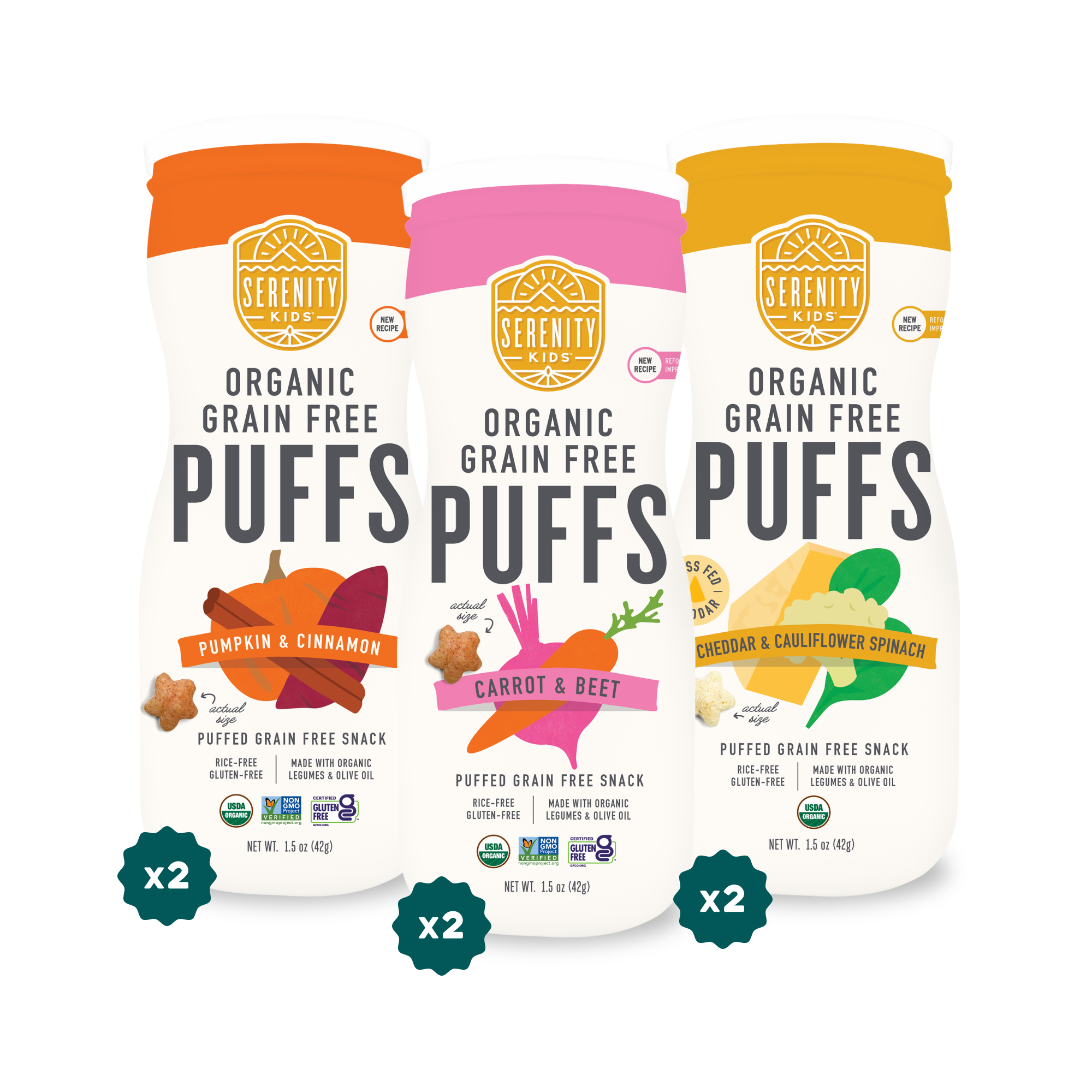TABLE OF CONTENTS
Written by Shelley Cameron
May 05, 2022
How Long is Formula Good For? Formula Preparation and Storage

Formula isn’t just an option for babies. Toddler formulas are becoming more and more popular as an option for providing your growing tot with nutrition well past 12 months of age (when powdered infant formula is generally weaned from).
Whether you chose to formula feed in the past, or are starting it for the first time, following proper preparation and storage guidelines is important to avoid your little one getting sick.
But how long is formula good for after being prepared? And how should it be stored? The answers will depend on several factors, such as your specific formula, whether it’s powdered or ready-to-drink, and whether it has been heated.
This article will take a look at the proper ways to handle and store formula milk and answer some of the common questions that arise when starting formula.
Why choose a toddler formula?
At Serenity Kids, we believe in providing children with high-quality, nutrient-dense options, without all the junk found in many formula products on the market—which is why we created our Grass Fed A2 Whole Milk Toddler Formula, intended for tots aged 12 months and up.
Our toddler formula is made with organic A2 whole milk, which tends to be easier to digest than A1 milk—most milk sold in grocery stores is A1 milk. Additionally, we source our organic dairy from regenerative dairy farms which actually help improve the land while allowing the cows to graze and live in more natural habitats.
It also contains organic lactose, nutrient-rich fats, DHA and ARA, and prebiotics. But just as importantly, it’s made without soy, industrial seed oil, corn, rice syrups, gluten, GMOs, grains, and synthetic folic acid.
For more information about why we love toddler formula, check out our article Why Toddler Formula?
How long does formula last once it is prepared?
Whether you’re preparing baby formula or toddler formula, it’s important to be aware that once prepared, formula must be consumed within a specified time frame to avoid bacterial growth, which can lead to infection or illness.
How long the formula will last after being prepared will depend on several factors, such as whether it’s a powdered or liquid product and whether your tot has already taken a drink from the bottle or cup.
Keep in mind that you should always refer to your formula’s directions for specific preparation and storage instructions, as there may be variations between brands—and even between different formulas within the same brand.
How long does powdered formula last at room temperature?
In most cases, a bottle or cup of prepared formula powder can last up to 2 hours if left at room temperature.
However, if the formula has been warmed or your little one has put their mouth on the bottle or cup, it’s advised to drink the formula immediately. In this case, whatever is remaining after 1 hour should be discarded to prevent bacteria from forming inside the bottle.
How long do liquid concentrate and ready-to-drink formulas last at room temperature?
Once a bottle or cup has been prepared using a liquid formula, such as concentrated formula or ready to feed formula, it’s generally recommended to consume it within 1 hour of preparation. Whatever is remaining after 1 hour of being at room temperature should be disposed of.
Using formula leftovers
On occasion you may find that your child hasn’t finished all of the formula you prepared for them. You certainly hate to let formula go to waste—but what are the rules for using the leftovers?
Here are some general guidelines to keep in mind when using formula leftovers.
Can you save leftover formula in the fridge for later?
Once your child has drunk out of the bottle or cup, any formula remaining after 1 hour should be thrown out to prevent bacterial growth.
Can you freeze and save leftover formula for later?
Formula, whether freshly prepared or leftover, should not be frozen, as the extreme temperatures can degrade the nutrients and cause components to separate.
Does a partially consumed portion of milk formula last as long as a recently prepared one in the refrigerator?
Formula that has been partially consumed does not last as long as a recently prepared formula that has been kept in the refrigerator.
Once the bottle or cup has been drunk out of, the combination of your little one’s saliva and the formula itself can cause potentially harmful bacteria to grow. This is why it’s recommended to discard any formula that remains in your little one’s bottle or cup after 1 hour.
What happens if your toddler drinks formula after three hours?
Formula should not be consumed past 1-2 hours at room temperature—depending on whether it was partially consumed or untouched. Your child's saliva, the warm temperature of the prepared formula, and the formula itself all contribute to bacterial growth, which can make your child sick if consumed past the recommended time frame.
Throw out any remaining formula after 1 hour for partially consumed formula and 2 hours for untouched formula.
Handling and storing formula
There’s seemingly no end to questions when it comes to parenting—from both you and your child once they begin talking. And while we may not be able to answer all your kid’s questions, we can certainly answer some of yours.
Here are answers to some commonly asked questions pertaining to handling and storing powdered milk formula.
Can you prepare formula ahead of time?
Some parents prefer to prepare one bottle of formula at a time, as needed. Others prefer to prepare the formula ahead of time. Either option is safe, as long as the prepared formula is refrigerated and consumed within 24 hours.
Can you refrigerate powdered formula?
Powdered milk formula that has already been mixed and prepared can be refrigerated for up to 24 hours.
However, avoid refrigerating unmixed powdered formula as the humidity can cause the powder to clump, which could affect your measurements when you go to prepare a bottle or cup of formula for your little one.
Can you freeze formula?
According to the Food and Drug Administration (FDA), prepared formula should not be refrigerated as it can cause the components to separate.
Freezing powdered formula should also be avoided, as the extreme temperatures could degrade the nutrients.
How to prepare formula safely?
When preparing formula for your child, follow these simple guidelines to ensure proper preparation every time.
-
Read all labels and directions; Every formula may have slightly different preparation and storage guidelines. It’s important to follow the directions on your specific formula.
-
Store milk formula containers in a cool and dry place with the lid tightly closed; avoid extreme temperatures, as they can degrade the nutrients in the formula.
-
Wash your hands before preparing the powder formula; This will help reduce the risk of transmitting germs and other contamination to your child’s bottle or cup.
-
Plan your formula preparations according to your toddler's needs; discuss with a health professional.
-
When in doubt, throw it out; if you aren’t sure if your child’s formula is still good, or how long it has been at room temperature, throw it out and avoid any potential for contamination or bacterial growth.
How can you heat unused prepared formula?
Unused formula can be heated using warm running water or a warm water bath (placing the bottle or cup in a bowl of warm water). Regardless of your method of heating the formula, make sure you test the temperature of the formula before giving it to your little one.
Keep in mind that a microwave shouldn’t be used to warm formula, as it can result in uneven heating and hot spots, which can cause burns on your toddler or baby's mouth.
How can you sterilize powdered formula bottles and cups?
Depending on the age of your child, you may be using bottles or cups. Regardless of which you choose, it’s important to sterilize the toddler or baby's bottle and cup components in order to kill germs and eliminate any buildup of formula.
Some common methods of sterilization include:
- Dishwasher
- Boiling water
- Microwave steam sterilizer
- Cold-sterilization chemicals
So what’s the bottom line?
No matter the age of your child, formula feeding may be an excellent way to provide your child with some extra nutrition for their growing body.
Regardless of which formula you choose, it’s important to follow safe preparation and storage guidelines. This will help reduce the potential for bacteria to grow on your little ones' bottles or cups and keep them safe from illness and infection.
Written by Jennifer Wirth. Jennifer is a professional health writer, leveraging her scientific background as a Chemical Engineer to uncover the most interesting aspects of infant nutrition, pregnancy, and parenting. As a wife and mother of three young children, Jennifer is passionate about providing the best possible nutrition for her family. She believes that developing healthy eating habits early helps build the foundation for a long, fulfilling life.
You Might Also Like
· 1 min read · Recipes
· 7 min read · Education















































